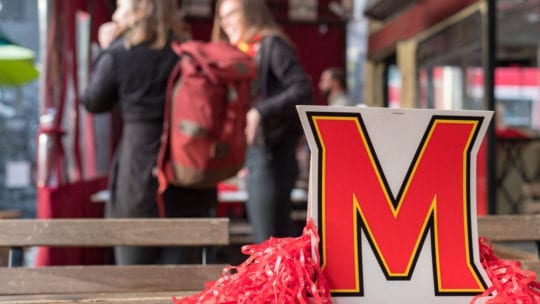
The communications team at University of Maryland (UMD) College Park must know that its past year has been bereft with poor decision-making. Last fall, the school made headlines for its poor handling of a crisis after student-athlete Jordan McNair died in early June 2018, a few weeks after collapsing during a rigorous football practice in late May.
Though it eventually did the right thing in firing coach D.J. Durkin, the school did its best to keep things quiet initially. UMD failed to communicate about McNair's death to alumni, students or parents for much of the summer. It stonewalled local press. Information flowed only after espn.com sought comment on a proposed story. UMD quickly issued a statement and scheduled a press conference. It was mid-August.
Even as espn.com's story hit the national media, the school remained incommunicado with students and parents. President Wallace Loh sent a letter to the campus as students returned to school in late August. By that point, media coverage had snowballed.
Defensive Failure
Now the beleaguered school finds another crisis on its hands. Once again poor communications and a defensive strategy backfired horribly. Late last week, The Washington Post ran a massive story re-telling the saga of an outbreak of adenovirus on campus last year. New reporting revealed that the school waited 18 days to notify stakeholders, including students and parents of the virus.
Freshman Olivia Paregol, 18, who contracted the virus, died last November, just as the McNair crisis finally reached some semblance of resolution.
“Along with the entire Board of Regents, I remain deeply saddened by the untimely passing of Olivia,” UMD board of regents chair Linda Gooden said last Friday, responding to the Post article. “Let me be clear, student safety is the first order of leadership and the highest priority at all of our campuses.”
Olivia Paregol’s father, Ian, disagreed. “From our perspective, the university has demonstrated a reckless pattern of indifference to the health and safety of staff and students,” he told WTOP.
A Pattern of Indifference
Ian Paregol's words are not hyperbole from a grieving father. In fact, as last week's Post article makes clear, the school failed to act at every stage of his daughter's illness without mounting pressure from parents.
"Widespread mold that fall had forced the temporary evacuation of nearly 600 students in Elkton Hall after outraged parents besieged officials at the state’s flagship university," the Post reported last week.
"But the university waited 18 days to tell the community after learning the virus was present on campus. Officials discussed—but decided against—notifying students with compromised immune systems and residents living in Elkton Hall..." Ultimately the virus struck more than 40 students.
University officials come off as defensive in the Post article. The school removed the mold in September 2018, they said. In addition, students were advised about preventing the spread of viruses. Officials insisted they exceeded their legal obligation, and that public health officials advised them not to inform the public. After the incident, the school hired two outside doctors to review its response procedures. The doctors "confirmed" the school handled things well, Dr. Linda M. Clement, VP of student affairs, said.
Medical Corroboration is not a Substitute for Crisis Prep
At every point in the Post's painfully chronicled read, UMD's explanations for not acting sooner rests on the fact that its communications team followed non-communicators, including medical experts and board members. The opinions of medical experts led the communications effort.
When Olivia's father confronted president Loh after his daughter's death, Loh noted "he had many employees and relied on their expertise for advice," the Post reported.
Takeaways here are numerous. One is that expert corroboration is helpful only when the experts are right. Used as a defense for a questionable move, particularly in hindsight, an expert's words are worthless.
In addition, stay in your lane. Medical experts are best when advising about health. Let communicators handle crisis communications. A medical panel might sanction UMD's 18-day wait. It's immoral in the court of public opinion, though.
At several points in its story, The Post implies that the school let its mold and subsequent adenovirus crises drag on because it was head down on the McNair death scandal. Had the comms team trained its medical experts on crisis comms, one has to wonder if its clear lack of resources would have still been an issue. Crisis comms is everyone's responsibility, not just the comms team—but it's the communicator's job to lead in such situations, not just in reaction, but from a proactive mindset.
Instead, we have a reversal—medical experts not only made diagnoses, but recommended students not be notified—that could have been avoided had UMD's communications team owned the crisis mitigation strategy. Sadly, this wasn't the case, and more students were exposed to the virus because of it.
